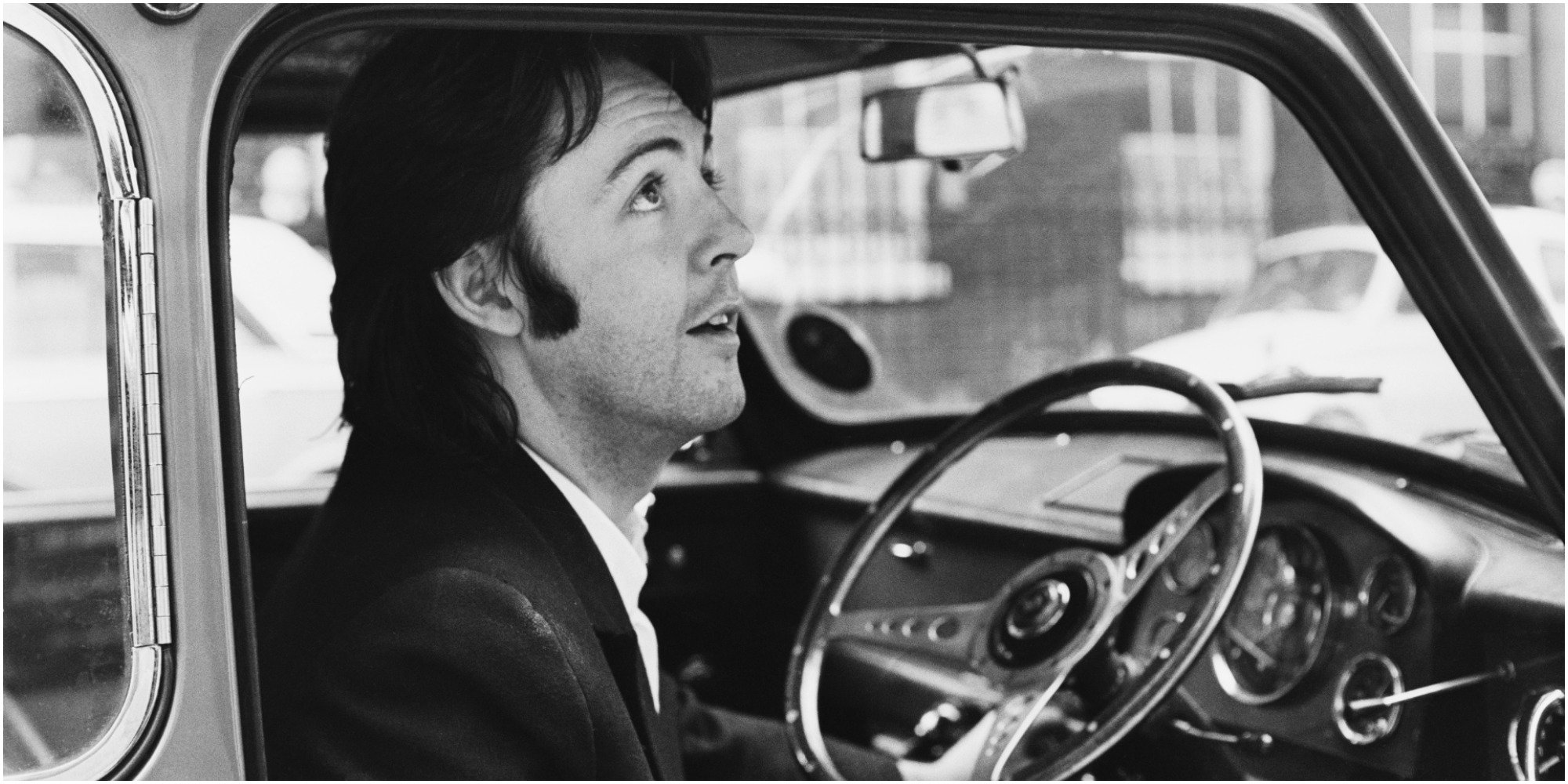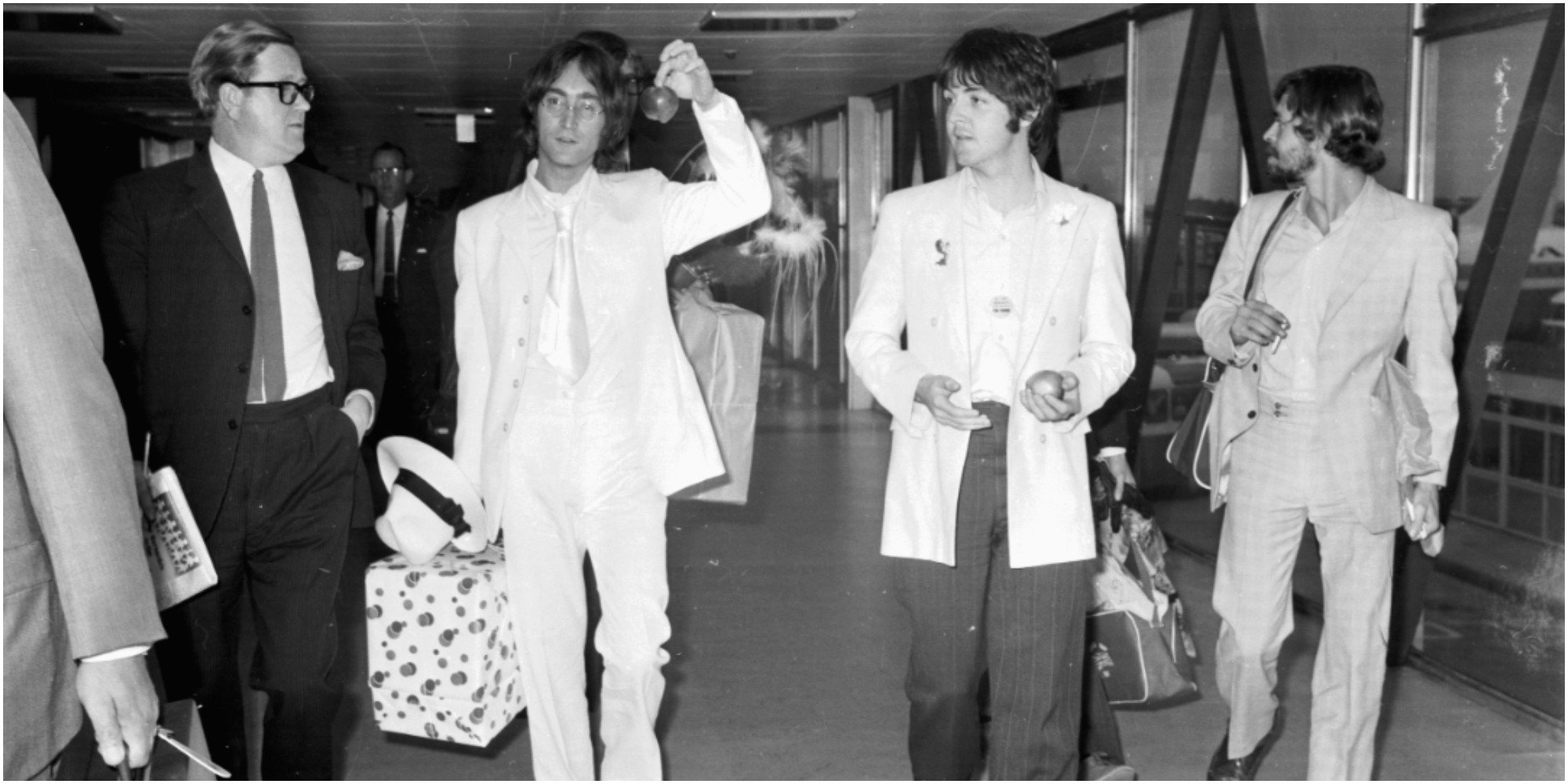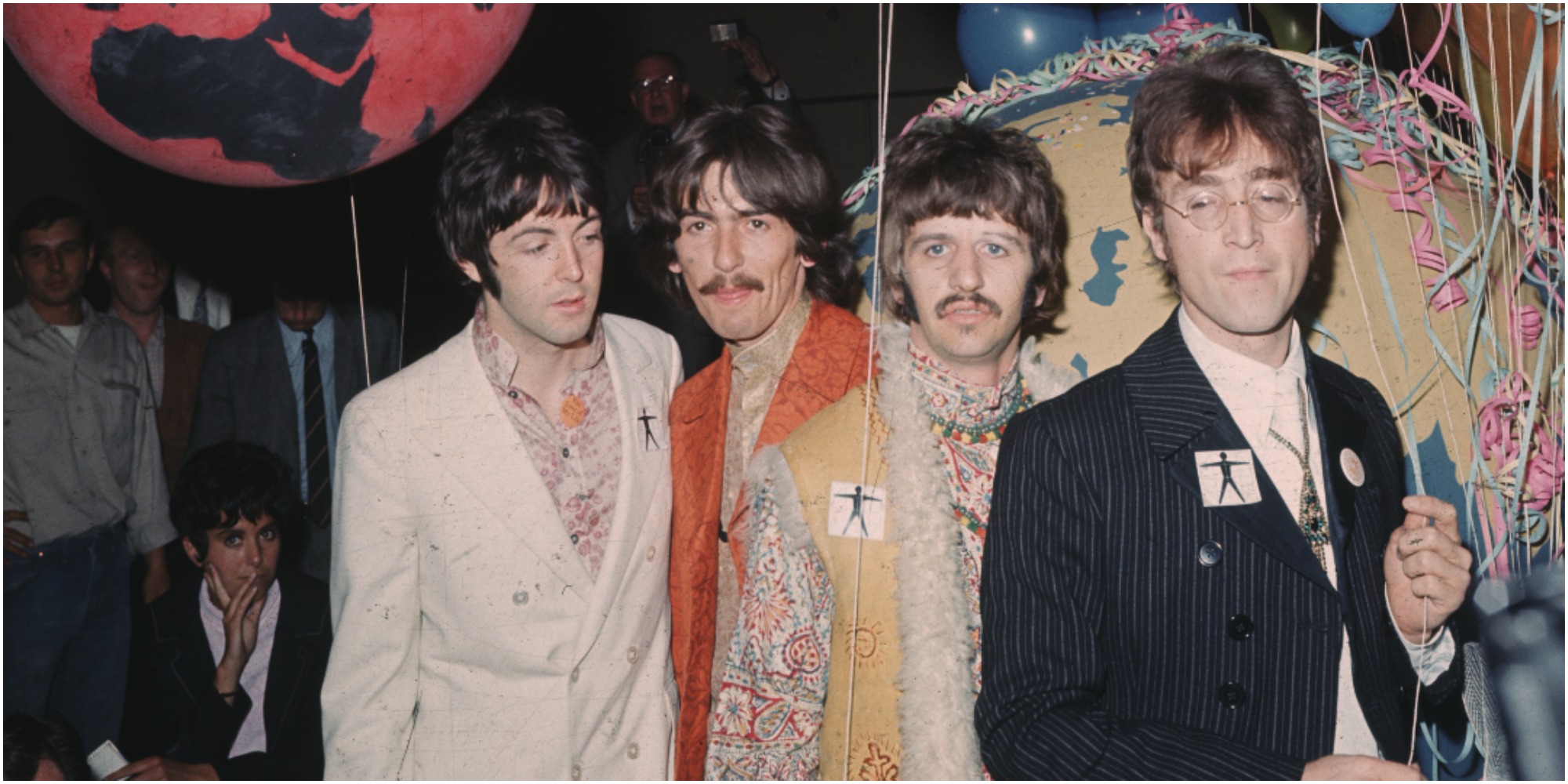The Beatles: Paul McCartney Claimed This 1 ‘Abbey Road’ Song Told the Behind-The-Scenes Truth of the Band’s Financial Troubles
By 1969, The Beatles were in a state of flux. The band members were beginning to drift apart emotionally, spiritually, and in their business dealings. However, Paul McCartney, George Harrison, John Lennon, and Ringo Starr continued to forge ahead with the group, attempting to put whatever differences they had with one another aside for the good of the band. Still, the band’s finances were in a sorry state due to their vanity project, Apple, which began as a way to explore and invest in projects outside The Beatles but turned into a financial disaster.

The original, multifaceted plan for The Beatles’ Apple Corps
Apple Corps was created by the band to replace their earlier company titled Beatles Ltd. It was led by Apple Records and also included and electronics arms, film, publishing, and retail blocks.
Upon announcing their new project, Lennon and McCartney explained their vision for the company.
“It’s a business concerning records, films, and electronics. And as a sideline, whatever it’s called… manufacturing, or whatever. But we want to set up a system whereby people who just want to make a film about (pause) anything, don’t have to go on their knees in somebody’s office. Probably yours,” said Lennon during a press conference regarding the business as published by the website Beatles Interviews.
“We really want to help people, but without doing it like a charity or seeming like patrons of the arts. We’re in the happy position of not really needing any more money. So for the first time, the bosses aren’t in it for profit. If you come and see me and say ‘I’ve had such and such a dream,’ I’ll say ‘Here’s money. Go away and do it.’ We’ve already bought all our dreams. So now we want to share that possibility with others.” McCartney added of their hopes for the business.
However, their dreams soon crashed as Apple began losing money

Fox Business claimed freewheeling spending, as well as the hiring of untrained people to run it, were two of Apple’s biggest missteps reported Fox. Also reportedly at fault were bad investments and no real business leadership.
The band’s boutique was run by George Harrison’s sister-in-law and a childhood friend of John Lennon’s. The head of talent for their record company was the brother of McCartney’s then-girlfriend Jane Asher. Other friends and hangers-on were also given important tasks within the company, many underqualified for these positions. Therefore, the result was a financial disaster for Apple Corps.
Paul McCartney said this 1 ‘Abbey Road’ song told the story of the band’s looming financial disaster

In the book The Lyrics: 1956 to the Present, Paul McCartney claimed the song “You Never Give Me Your Money” explained the band’s financial troubles.
“The Beatles stuff all got too heavy, and ‘heavy’ at that time has a very particular meaning for me. It meant more than oppressive. It meant having to go into meetings and sit in the boardroom with the other Beatles, the accountants, and Allen Klein,” McCartney explained.
Klein was favored by Lennon, Harrison, and Starr to take charge of their financial mess. However, McCartney favored his father-in-law Lee Eastman to take over the large task of managing the band’s cash flow problems.
“Allen Klein and Dick James sold our publishing in Northern Songs without giving us a chance to buy the company.. They were both hanging around in the background of this song,” McCartney said in the book.
“All the people who had screwed us or were still trying to screw us. It’s fascinating how directly we acknowledged this in the song. We’d cottoned on to them, and they must have cottoned on to the fact that we’d cottoned on. We couldn’t have been more direct about it,” he admitted.
“That phase of our lives, of being The Beatles, was coming to an end,” McCartney added.
“We were working toward an album, knowing it was probably going to be our final fling. Though “Let It Be” was released later, “Abbey Road” was indeed the last album we recorded in the studio,” he concluded.


